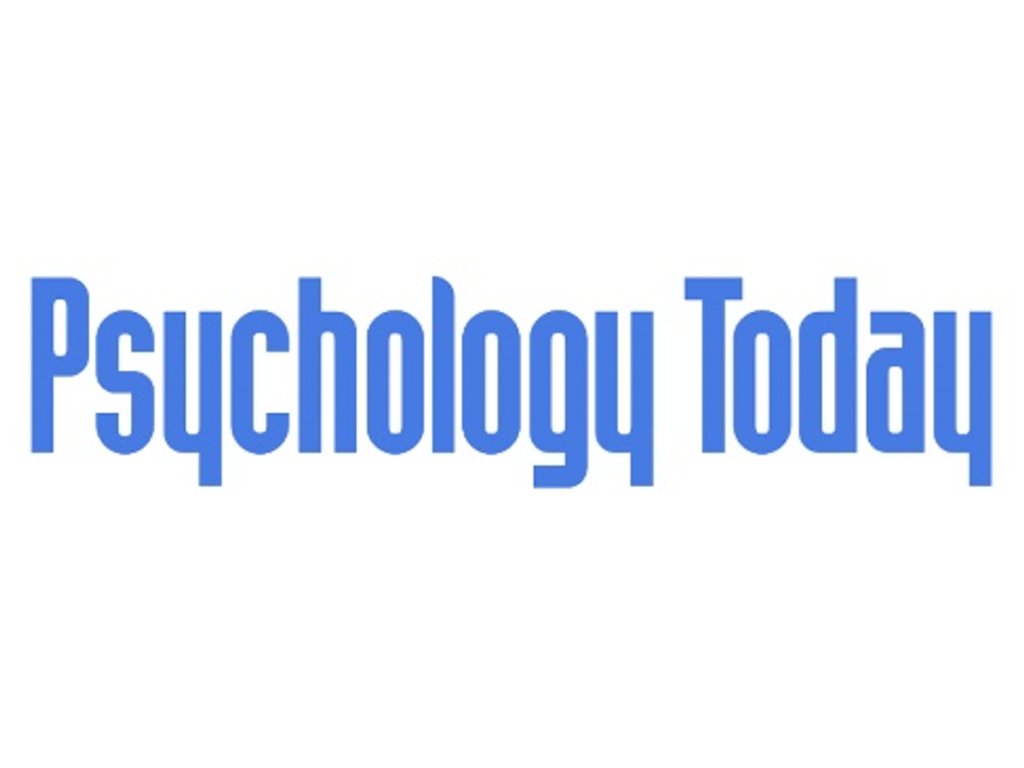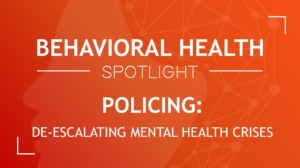December 2020 BHARC Insights – “Policing: De-Escalating Mental Health Crisis” is Now Available Online
December 7, 2020 (Lanham, MD) – In recent months and years, national news and social media have documented multiple instances of police officers using excessive force or fatally injuring civilians, including individuals with mental health problems. Published by the Behavioral Health Advancement Resource Center (BHARC), this inaugural December 2020 Behavioral Health Spotlight offers insights and commentary to Crisis Intervention Team (CIT) Programs.
CIT Programs teach police officers how to respond to a person experiencing mental health crisis and de-escalating the situation. It is designed to be a community-based partnership with law enforcement, mental health professionals, peer support specialists, mental health advocates, and positive community supports. “This article illustrates that CIT community partnerships can be a positive component of a response to mental health crises—ultimately saving lives and strengthening law enforcement relations within communities,” said Anton C. Bizzell, MD, BHARC advisor and CEO of The Bizzell Group (Bizzell). BHARC is funded by Bizzell.
The BHARC Behavioral Health Spotlight is a thought leadership series highlighting various behavioral health topics that impact communities across the United States and abroad. “Policing: De-escalating Mental Health Crises” was written by Mim Landry, a BHARC Advisory Council Substance Use and Mental Health Expert. The article describes the CIT goals and core elements and includes a review and commentary of recent literature as an evidenced-based framework in helping individuals who experience behavioral health crisis.
DOWNLOAD THE ARTICLE HERE.
About BHARC
The Behavioral Health Advancement Resource Center (BHARC) is an authoritative source for behavioral health information, insights, technical assistance, training, and innovative tools. BHARC is a mechanism to share evidence-based behavioral health interventions and best practices. The BHARC Advisory Council consists of experts in substance use, mental health, clinical trials, pharmaceuticals, and healthcare standards and quality.
About Bizzell
Established in 2010, The Bizzell Group (Bizzell) is a U.S. Small Business Administration (SBA) 8(a) certified strategy, consulting, and technology firm that specializes in program management, administrative support, communications and outreach, conference management and logistical support, health services and research, technical assistance, and training and development. Bizzell’s expert staff and consultants work on health, scientific, education, environmental, research, and information technology projects that advance national priorities. Under the leadership and vision of founder, Anton C. Bizzell, MD, the company has grown from a staff of two in one small office, to a thriving firm with offices in Lanham, MD; Rockville, MD; Atlanta, GA and the Democratic Republic of the Congo, with ongoing projects around the world. Learn more about how we develop data-driven, research-informed, innovative solutions to complex-real-world challenges: BizzellUS.


